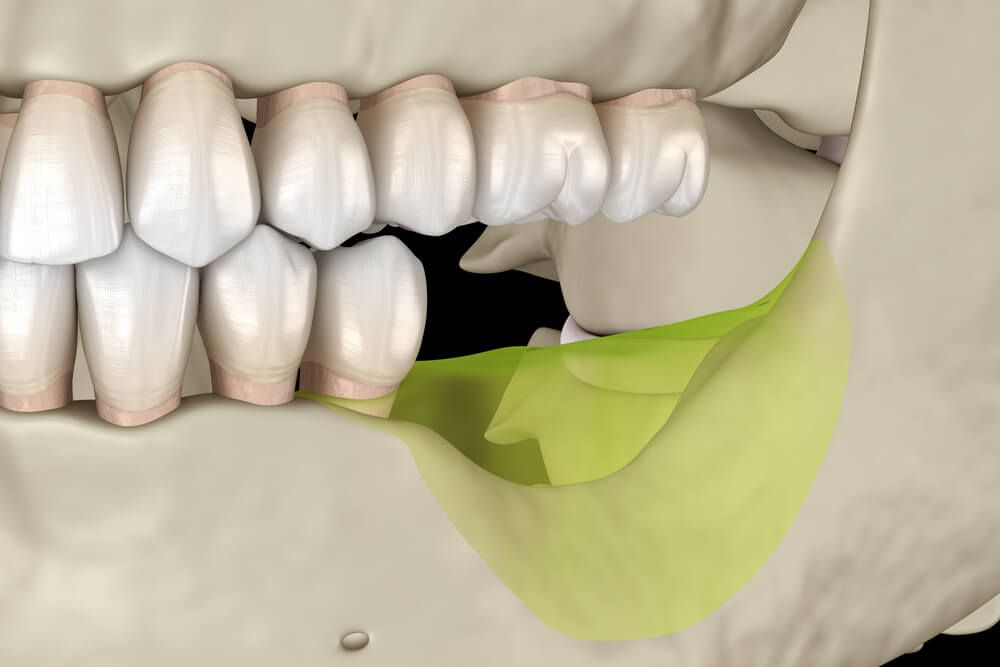In a guide brought to you by Chicago Dental Implants, we break down how osteoporosis, or bone loss, can affect you.
What Is Osteoporosis?
Osteoporosis is a medical condition in which bones become weak and brittle. The human body constantly replaces bone, which is a living tissue. You can think of this as a “remodeling” process, in which so much of your bone tissue is replaced that you get a new skeleton approximately every 10 years.
When the creation of new bone cannot keep up with the loss of old bone, this is osteoporosis. In these cases, the bone becomes so vulnerable that a fracture can result from mundane day-to-day occurrences, such as coughing or bending down. Unfortunately, most people with osteoporosis do not realize they have this condition until they experience a bone fracture. In some cases, osteoporosis can result in a curved, stooped shape to the spine, or even up to 2 inches in height loss.
Who Is At Risk For Osteoporosis, And How Can It Be Prevented?
Osteoporosis-related fractures most commonly occur in the wrist, hip, or spine. While osteoporosis can affect anyone, white and Asian women, and older women who are past menopause are most at risk.
However, you can begin osteoporosis prevention at any age by strengthening bones with weight-bearing exercises such as walking, hiking, jogging, tennis, dancing, or weight training. Research shows that exercise can help build stronger bones and slow bone loss.
You can also incorporate foods rich in calcium into your diet, such as:
- Milk and cheese and other dairy products
- Tofu and other soy products
- Dark green leafy vegetables
- Sardines with bones or canned salmon
- Calcium-fortified products such as lactose-free milk and orange juice
Vitamin D is crucial to your body’s ability to properly absorb the calcium you ingest. While you can get some amount of vitamin D from sunlight, you can also get vitamin D from your diet if you incorporate trout, salmon, or cod liver oil.
It is worth noting that if you lead a sedentary lifestyle, and engage in regular to excessive alcohol and tobacco use, you are more likely to be at risk of osteoporosis. Increasing your weekly exercise, as well as reducing your smoking and drinking or stopping these vices entirely can be beneficial.
How Can Bone Loss Affect My Dental Health?
There are several ways in which osteoporosis can be a concern when it comes to someone’s dental health:
- Jawbone density and osteoporosis
- Tooth loss and jawbone density
- Gum disease and bone loss
1. Jawbone Density And Osteoporosis
Someone with osteoporosis can find that this bone loss can affect their jawbone density as well. A decrease in jawbone density can, unfortunately, cause serious dental issues and directly impact your dental health. Fortunately, your dental healthcare provider can screen for osteoporosis by taking dental X-rays. A dentist can determine if a patient has normal or low bone density based on viewing the resulting X-rays. Should there be a risk of osteoporosis, a dentist can encourage a patient to talk to their doctor. This is another way in which people can benefit from regular dentist visits.
2. Tooth Loss And Jawbone Density
Your jawbone is the foundation for your teeth. If this foundation is weakened due to osteoporosis, you may risk losing teeth. Studies have shown that women with osteoporosis are more likely to experience tooth loss than women without the condition. Even people without osteoporosis should be wary of tooth loss. If you lose a tooth, the bone underneath the missing tooth becomes weaker due to a lack of stimulation as time passes. This can become an issue when an oral surgeon examines that jawbone to determine if the foundation is strong enough for an artificial replacement tooth.
3. Gum Disease And Bone Loss
There is some evidence to link gum disease to osteoporosis and tooth loss. It is theorized that a jawbone weakened by osteoporosis can be more vulnerable to periodontal bacteria, thus increasing the risk for both gum disease and tooth loss.
If you are based in the Chicago area and interested in regular, preventative dentist check-ups or dental implants, look no further than Chicago Dental Implants. Chicago Dental Implants is glad to serve patients with multiple offices throughout the Greater Chicago area, in Orland Park, Plainfield, Joliet, and Downers Grove. Request an appointment today.

